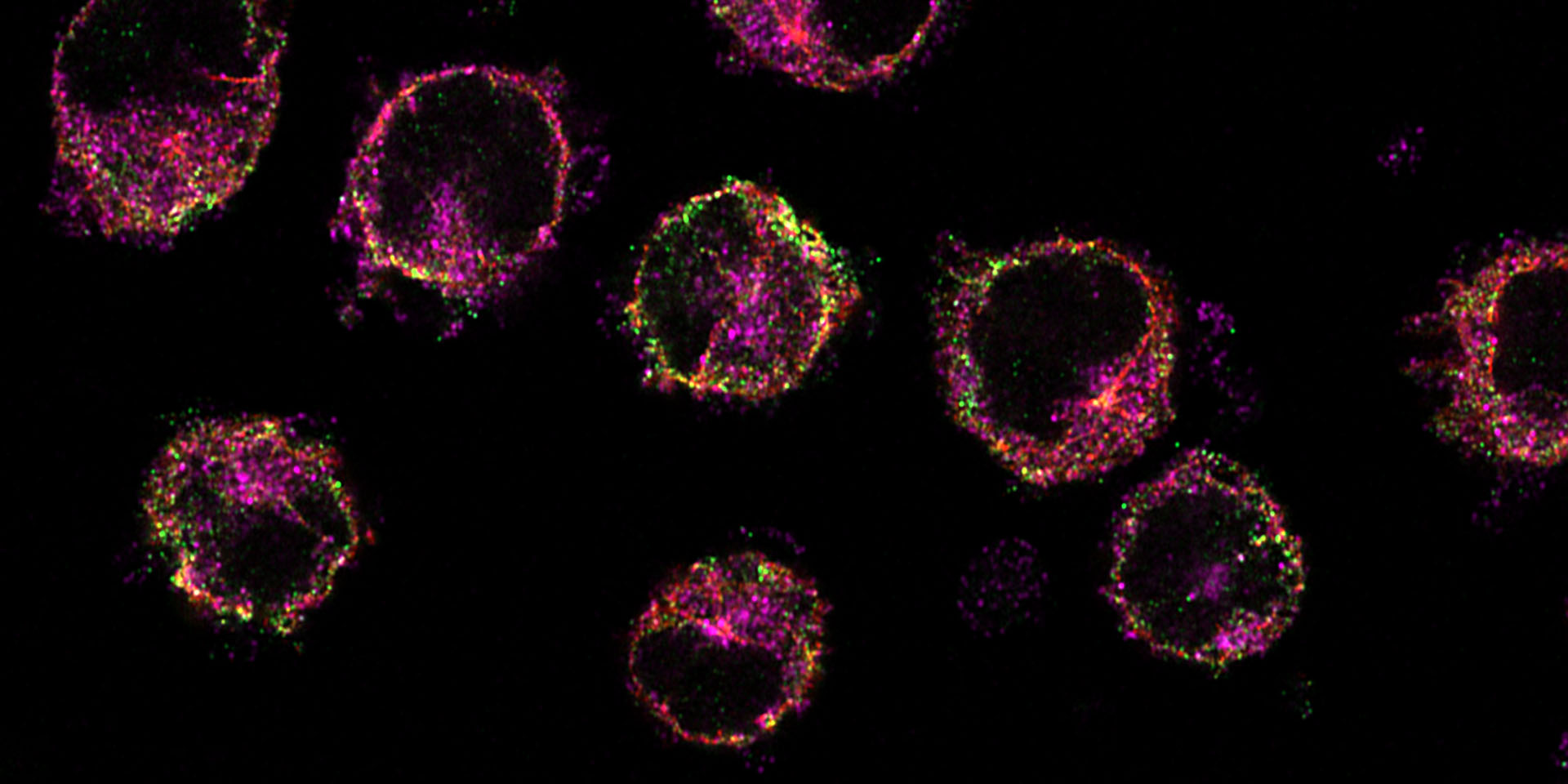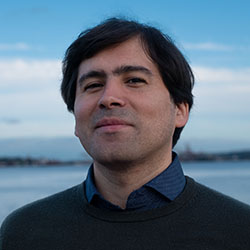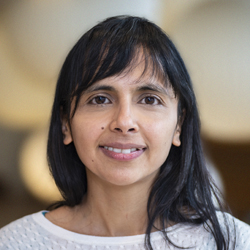
Acharya Lab
The Acharya lab studies how immune cells integrate signals from pathogens and their environment to produce effective immunity against pathogens while maintaining tolerance to self-derived antigens.
Antigen binding to immune cells activates a complex network of receptors depending on the type of the antigen and other micro-environmental signals. These initial interactions determine the type of immune response that is subsequently generated. B-lymphocytes provide an excellent model to study these kinds of signals because their stages of development and functional specialization during various types of immune responses have been well illustrated.
We are interested in understanding, the link between intracellular signaling events triggered upon antigen encounter that ultimately lead to expansion of certain B cell populations. Understanding how these early mechanistic events that regulate recognition and processing of antigens would allow us to develop novel strategies to enhance B cell activation to antigens in vaccines, while preventing activation by self-antigens.
Development of long-lived and effective immune response against pathogens
Successful immune response to many pathogens is dependent on the production of rapidly evolving, high-affinity, neutralizing antibodies by B cells and the generation of memory and plasma cells that protect against re-infection by the same pathogen.
We are using animal models to study mechanisms that regulate development of antigen specific B cell populations such as germinal center cells, memory B cells and plasma cells during immunization with viral pathogens. Specifically, we are interested in understanding how novel proteins and pathways such as integrin signaling and autophagy proteins impact expansion of these types of B cell population and affinity maturation of antibodies.
These studies address the current challenges to develop better vaccine strategies against rapidly evolving human pathogens such as Influenza, HIV, Malaria etc. In collaboration with other researchers at CIIT we are also using gene editing technologies to understand mechanisms that allow us to develop long-lived plasma cell responses.
Molecular mechanisms of intracellular trafficking during B cell activation
The micro-environmental context in which B cells encounter antigens defines signaling pathways that are activated and the type of immune response that will be generated. We are using a combination of microscopy and biochemistry techniques to understand signaling and intracellular trafficking of: (a) cytoskeletal receptors such as integrins, tetraspanins, (b) immune receptors such as BCR, TLRs, and (c) soluble molecules such as kinases and autophagy proteins during B cell stimulation by various types of ligands and antigens.
B cell activation during human autoimmune diseases
Uncontrolled activation of B cells by self-antigens and subsequent autoantibody production is a key feature of autoimmune diseases such as SLE. Using samples available at BRI repositories we are studying B cell activation during SLE to identify early events that lead to activation of self-reactive B cells during autoimmune diseases. Similarly using these samples we are also studying the role of genetic variants in cytoskeletal proteins and autophagy pathway to identify novel targets that can modify B cell activation during autoimmune diseases.
Partnership Opportunities
-

Jonathan Lagos Orellana
Postdoctoral Researcher
With an M.D. and a Ph.D. in Medical Sciences from the Pontifical Catholic University of Chile, Jonathan Lagos Orellana is currently a postdoctoral researcher at Seattle Children's Research Institute. Their research investigates the critical intracellular events during B cell antigen engagement, internalization, and posterior activation.
-
Laura Martinez-Castro
Research Scientist I
Laura Martinez is a Research Scientist at the Acharya Lab. She is an outdoor enthusiast with a bachelor’s degree in biology.
-
Andrea Montiel-Armendariz
Research Scientist II
Andrea is a Research Scientist focused on understanding the underlying biological mechanisms of immune responses. She earned her Bachelor's degree in Biology from Universidad Nacional Autónoma de México (UNAM) in Mexico City and an MRes in Systems and Synthetic Biology from Imperial College London, providing a robust foundation in both traditional biology and computational approaches. Her current work investigates the critical role of αv integrins in modulating the host immune response to influenza infection. Andrea is committed to collaborative scientific research and is excited to join the UW Immunology program in autumn 2025 to advance her contributions to the field.

